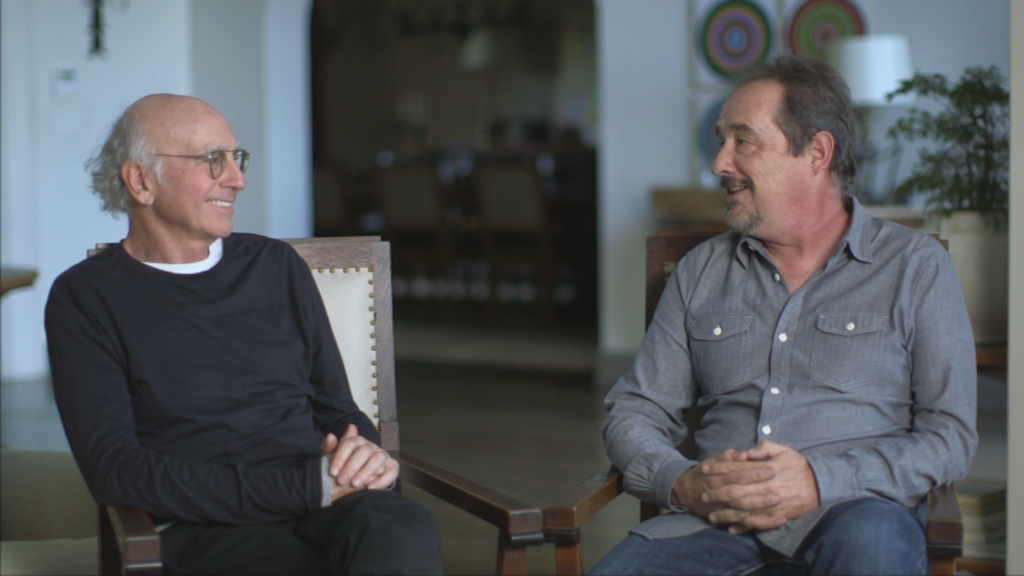Film Review: ‘Where Have You Gone, Lou DiMaggio?’

Trying to disprove the maxim that you can’t go home again, the real-life comedian of the title attempts to reignite his faded stand-up career in “Where Have You Gone, Lou DiMaggio?” — a documentary whose life lessons are as predictable as they are slight. Brad Kuhlman’s film depicts DiMaggio’s quest as amounting to very little, as the comic spends more time reminiscing with old friends and providing a brief history lesson about the New York comedy scene than actually getting in front of an audience. As a fond look back at a particular milieu, the doc has its minor charms, but it’s far too narrow to resonate outside its niche target audience.
In the 1980s and early 1990s, DiMaggio (no relation to Yankees star Joltin’ Joe) was a rising talent and fixture at Manhattan’s Catch a Rising Star, the launch pad for future luminaries such as Robin Williams, Larry David, Billy Crystal, Chris Rock, Adam Sandler, Richard Belzer and Colin Quinn. Unsurprisingly, DiMaggio soon saw himself as destined for a marquee project that might propel him to greater heights. Yet after relocating to Los Angeles, he found himself increasingly gravitating toward behind-the-camera jobs on a variety of TV shows — including “Win Ben Stein’s Money,” for which he won an Emmy that he unearths, right next to his tin of cocaine paraphernalia, in a box buried in his garage.
Now compelled in middle age to return to stand-up, DiMaggio begins meeting on camera with some of his industry BFFs, including David, Quinn and Howie Mandel, the latter of whom elicits a confession from DiMaggio that the reason he gave up his beloved prior life was, in part, because of a painful divorce. Unfortunately, aside from Mandel’s amusing decision to spontaneously call DiMaggio’s ex, director Kuhlman avoids digging into the specific reasons why DiMaggio charted the course he did; rather, the helmer favors listening to his subject speak about Catch a Rising Star’s heyday, replete with plenty of great archival clips and photos that help convey the establishment’s role as the epicenter of the 1980s stand-up world.
There’s plenty of regret driving DiMaggio forward, and in narration as well as numerous interviews he comes across as well aware of the creative and age-related obstacles facing him. But the doc is all talk and little action, with most of the first hour of this 75-minute pic focused on DiMaggio chatting about the good old days, as well as his stand-up plans and what tonal approach he should take — the nuances of crafting a set — rather than genuinely working toward those goals. While this strategy produces plenty of amusing anecdotes, it also leaves the film feeling like a long act of procrastination, a trait DiMaggio’s wife says defines him.
Eventually, DiMaggio stops dithering and finally gets to writing new material based on his present-day circumstances as the father of three kids, thanks to advice from Ray Romano and Jeff Garlin, among others. Even then, however, the film skimps on substance, providing only glimpses of two shows before wrapping up with some triumphant slow-motion and swelling music, as well as a platitude from DiMaggio about the impossibility of ever recapturing the past — a sentiment that’s true but, amid so much nostalgia, rings more than a bit hollow coming from this particular messenger.
Related stories
Dear Academy: Don't Overlook These Great Performances
'Curb Your Enthusiasm' to Return for Season 10
Joy Behar Lists Upper West Side Co-Op, Buys Lincoln Center Condo (EXCLUSIVE)
Subscribe to Variety Newsletters and Email Alerts!

